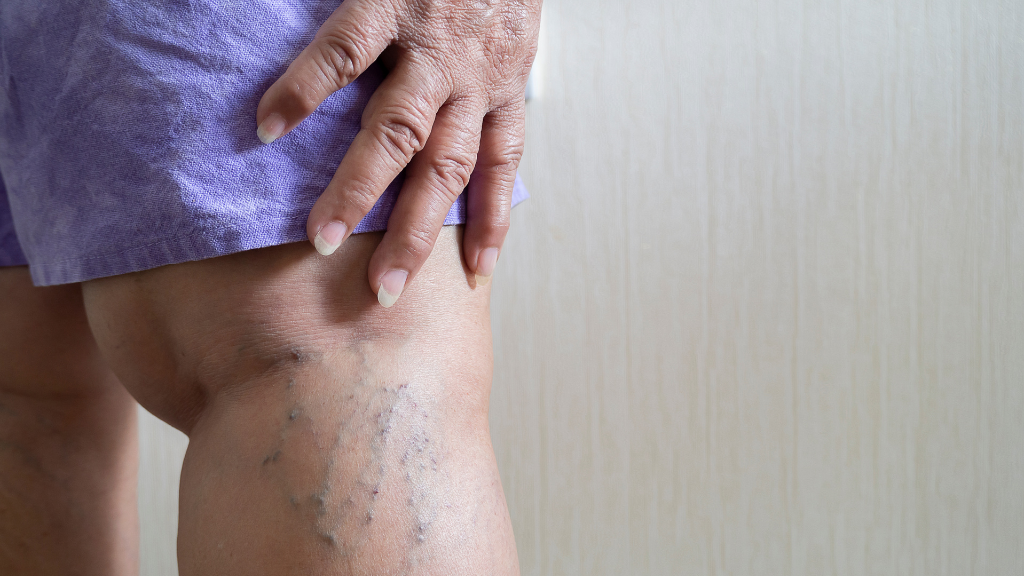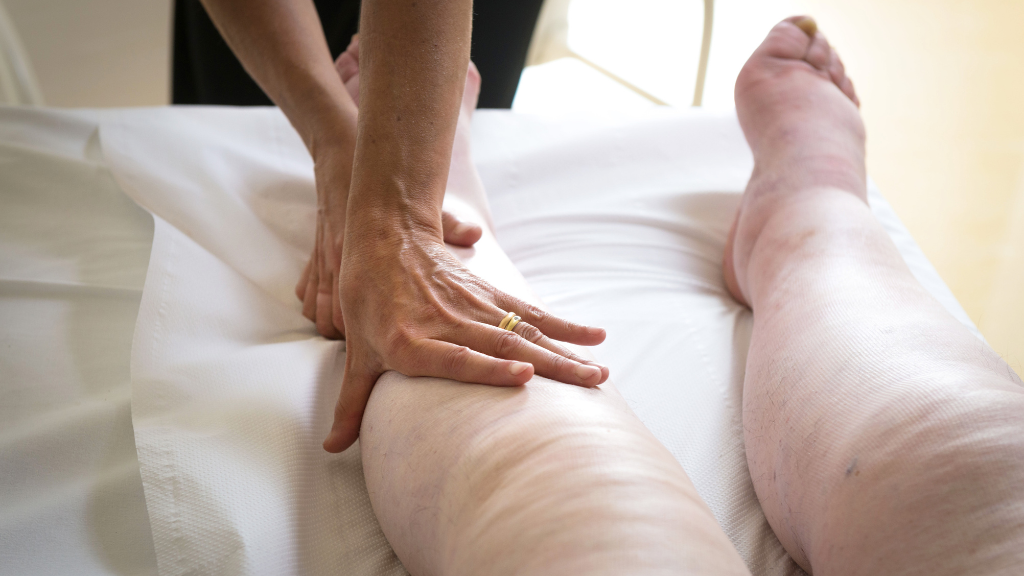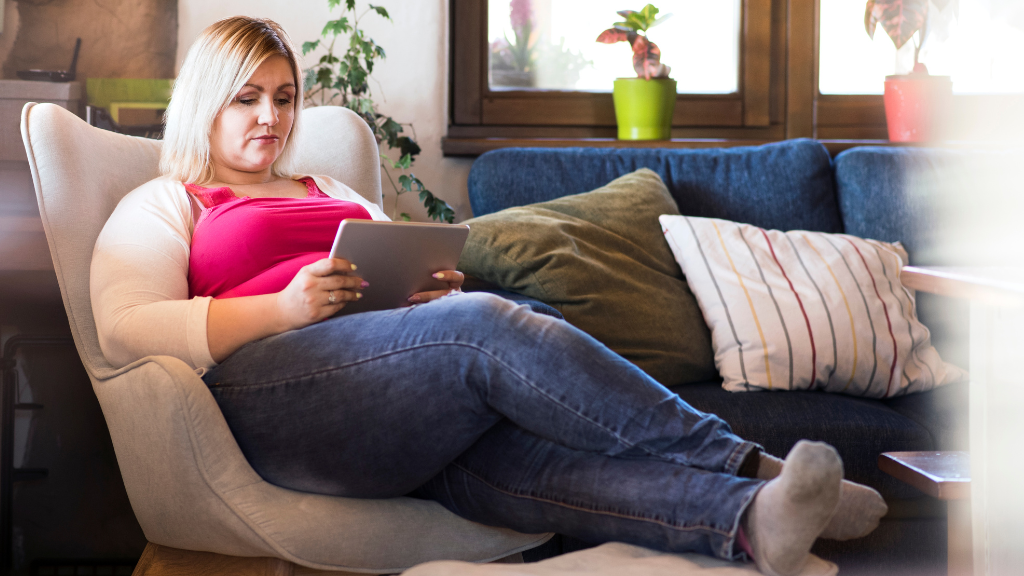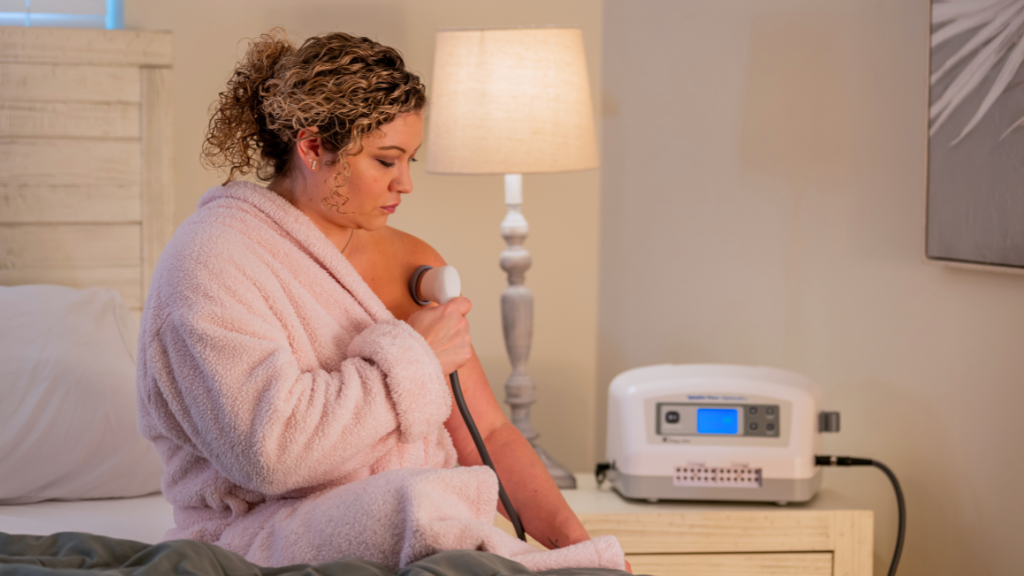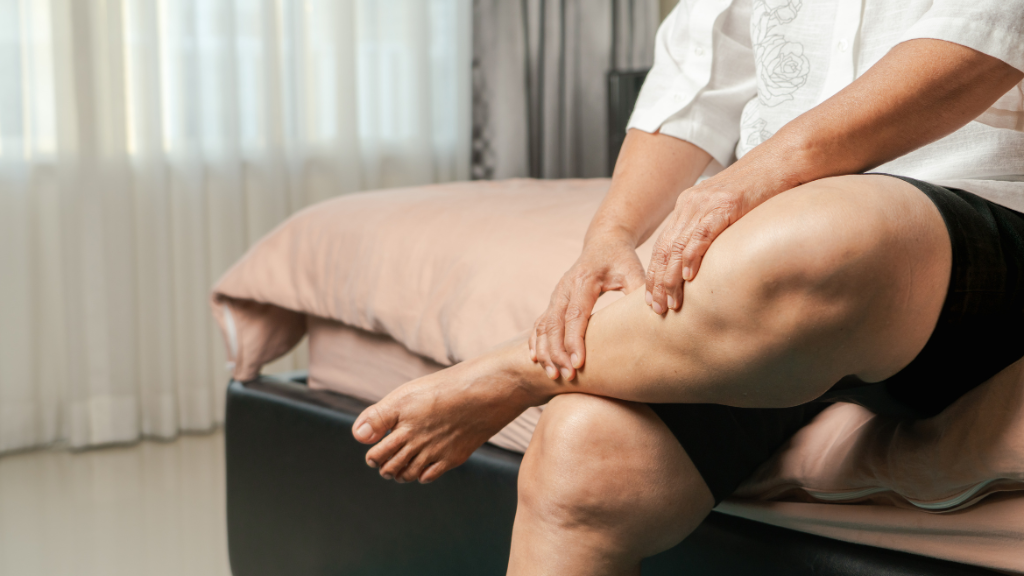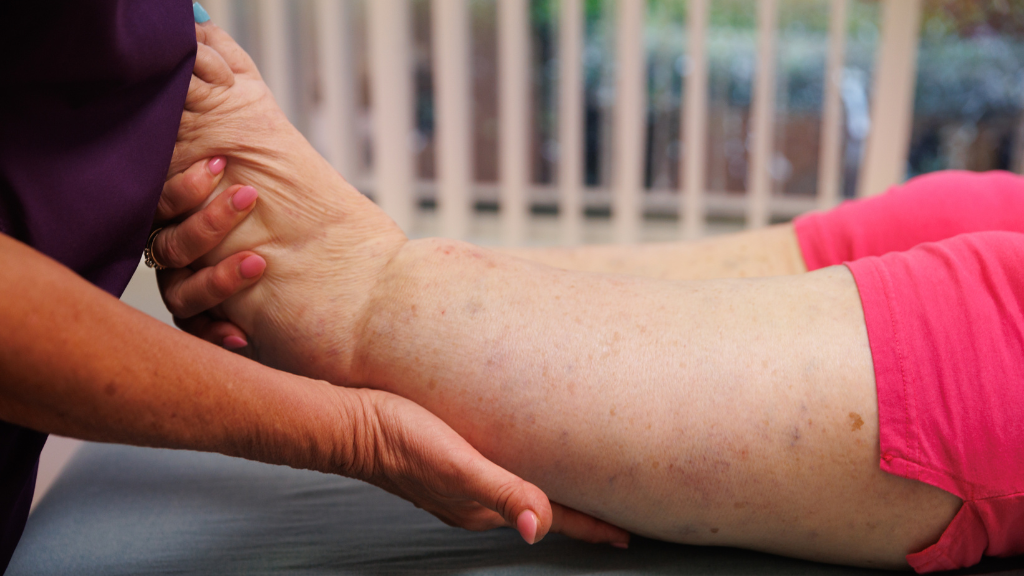Lymphedema and vein conditions (venous disease) can occur separately but may also occur together. There are several types of venous disease people with lymphedema may have. But how are lymphedema and vein health related? What’s the difference between lymphedema and venous insufficiency?
The following Q&A with Manu Aggarwal, MD, medical director at the Vein Care Center Laser Specialists, helps answer those questions. Dr. Aggarwal provides information about the different disease types along with tips on preventing vein problems and slowing their progression.
Q. How Are Lymphedema and Vein Conditions Related?
A. To understand the link between lymphedema and venous disease, we need to look at how they influence each other and the role inflammation plays. Inflammatory processes can create havoc for people with these conditions. You see evidence of inflammation in skin changes and increased swelling, and eventually, it can affect your ability to do things you want to do.
When an inflammatory process takes over, it causes tissues to break down. This deterioration leads to skin changes and the worsening of healthy tissues, including blood vessel walls. The result is venous insufficiency, where the valves in the veins don’t work properly to transport blood in your body.
Q. What Are the Symptoms and Types of Venous Disease?
A. The first signs of vein problems often appear on the skin and may include:
- Redness
- Itchiness
- Spider veins
- Swelling
We often see people with more than one vein condition, such as:
- Spider veins: Small blood vessels just below your skin become damaged.
- Varicose veins: Larger veins below your skin become swollen and bulge.
- Venous insufficiency: Your body does not effectively pump blood back to your heart.
- Venous ulcer: A wound takes a long time to heal due to poor blood flow.
- Deep vein thrombosis: Blood clots form in deep veins and can be deadly.
Q. Why Do Lymphedema and Venous Insufficiency Occur Together?
A. Lymphedema and venous insufficiency often occur together, so knowing which condition came first can be challenging. Each condition can lead to or worsen the other. I’ll talk about each of them separately:
Venous Insufficiency
Chronic venous insufficiency happens when the veins that carry blood back to your heart don’t work well. It occurs because the vein valves or walls have become thin, so the veins can’t carry blood to your heart efficiently. We also see this condition in patients with heart and lung conditions.
Venous insufficiency can cause significant swelling in your limbs, leading to mobility problems. Swelling in your feet can lead to problems with balance and walking, which may cause you to decrease your activity level.
Lymphedema
Lymphedema is a condition of the lymphatic system and doesn’t directly involve the blood and veins. This condition happens when lymph fluid pools in different areas of your body.
Lymphedema and venous insufficiency can both cause swelling in the same areas of your body, typically your limbs.
Q. What Is the Best Way to Treat Vein Conditions That Co-Exist With Lymphedema?
A. Treatment for venous disease depends on the conditions you have and how severe they are. Vein conditions often occur together. You may have spider veins, varicose veins, and a lot of swelling in your feet, for example.
It’s important to find a vein clinic or specialist that addresses every aspect of vein health. A comprehensive approach includes:
Venous Mapping
Venous mapping uses ultrasound to get a complete picture of any problem areas. This technique examines your deep veins and those close to your skin’s surface to assess how well all your blood vessels carry blood back to your heart.
Complete Medical Care
At Vein Care Clinic, we enlist a network of specialists for comprehensive care. The care team addresses all the medical pieces of the puzzle around vein conditions, including related conditions like lymphedema. A reputable provider is willing to work with other specialists, particularly in difficult situations.
Learn more about what to look for in a specialist.
Cosmetic Procedures
Comprehensive vein care also means addressing aesthetic concerns caused by venous and lymphatic disease. These can include bulging veins, discoloration, and spider veins. Patients shouldn’t be afraid or ashamed to ask for a referral for cosmetic procedures.
Q. Can I Prevent Vein Problems With Lymphedema?
A. Definitely. To prevent vein problems from occurring or worsening, I suggest these tips:
- Monitor your skin health: Skin problems from lymphedema or vein conditions can indicate a more severe problem and affect your quality of life. Open wounds may cause you to reduce your activities, impacting your overall health.
- Keep swelling down: With too much swelling, you can get recurrent infections called cellulitis. This condition can lead to very painful skin changes, which can become debilitating. Read more about how to get lymphedema swelling down.
- Treat varicose and spider veins: Varicose and spider veins aren’t just cosmetic problems. They’re conditions that require medical care.
Q. What Other Steps Can I Take to Keep My Veins Healthy?
A. I urge all my patients to take the following four steps regularly to prevent lymphedema and venous insufficiency:
Keep an Eye on Your Feet
With venous disease, your feet are particularly important, so do regular foot checks for any wounds or skin changes.
The blood vessels in your feet are farthest from your heart, so it’s hard for your body to heal wounds there. Wounds may worsen because you can’t see them easily or feel them due to nerve changes. Sometimes, foot wounds arise from walking differently to try to alleviate pain in your feet.
Optimize Your Routine and Lifestyle
Your daily routine and lifestyle can significantly affect your vein health. Keeping up with your compression regimen is very important. This includes staying active, maintaining a healthy diet, and managing your weight. All these things contribute to lymphedema as well as venous disease.
Read more about how compression helps lymphedema.
Supplements May Improve Vein Health
Some people try supplements such as horse chestnut extract, hesperidin, and diosmin for vein health. These supplements haven’t all been approved by the Food and Drug Administration for vein conditions, but they may improve venous tone for people with the disease.
Ongoing Management is Key
Since venous disease and lymphedema are both lifelong conditions, working with your care team is crucial so you can find ways to manage your health and symptoms. Schedule visits with your provider regularly. Care for venous conditions is a growing field, and the treatments and technologies are constantly changing.
Dr. Aggarwal is board certified by the American Board of Family Medicine and a Diplomat with the American Board of Venous and Lymphatic Medicine.
To learn more about how lifestyle affects lymphedema, watch the video Lifestyle and Lymphedema: Impacts of Nutrition, Exercise, Sleep, and Stress.
